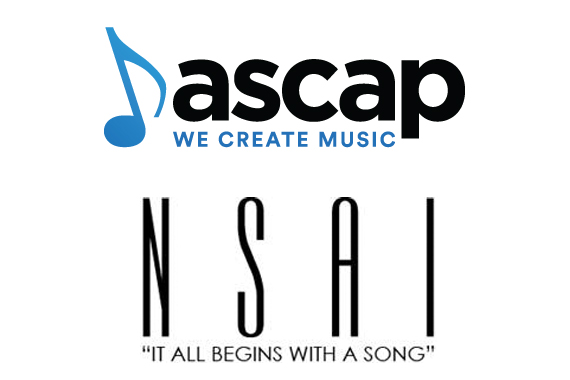

NSAI President Lee Thomas Miller and ASCAP President Paul Williams have formally expressed their negative view of the Department of Justice’s ruling regarding the consent decree and 100 percent licensing.
Although the Department of Justice’s intentions were revealed in June, the official ruling was posted to their website on Thursday (Aug. 4).
Miller’s dissension was sent to MusicRow in a press release while Williams’ views were shared in a letter sent to ASCAP members.
The statements are the result of the Department of Justice’s ruling to keep 75-year-old ASCAP and BMI consent decrees intact, while also implementing a new requirement mandating that each PRO license songs in their respective repertoires on a 100 percent basis, upending the long-standing industry practice of fractional licensing. The change is expected to create significant logistical and legal challenges for PROs, publishing companies and songwriters.
The full commentary is listed below:
Lee Thomas Miller, President NSAI:
“I cannot emphasize strongly enough how ludicrous this DOJ ruling is. NSAI has had multiple conversations and meetings with the DOJ. When I met with the assistant Attorney General, who is behind this, I graphically explained to her and her team the damage that the current, archaic music licensing and rate setting process is having on the songwriters. I then told her that her 100% licensing plan will threaten the last stream of income we have. I am disgusted that they are proceeding with this hostile attack against the smallest business in America- the songwriter. Please know that we at NSAI will not be silent. We do not accept this. Songs do not fall out of the sky. They are created slowly through years, sometimes decades, of life experience and pain and joy and hope and practice and failure and a tireless dedication to the learning of a craft that gives birth to a multi-billion dollar industry, an industry which would not exist without the songwriter. This is not a third world country where the government can impose unjust rule over members of the working class. We pay taxes. We generate commerce. We establish, drive and change culture. The government is wrong on this and I think they know it. I promise you we will be proclaiming it from every podium we can find. We will fight today and we will fight tomorrow because we have nothing to lose.”
Paul Williams, President, ASCAP:
Dear ASCAP Member,
Today, the US Department of Justice (DOJ) released its official public statement regarding its review of the 75-year-old ASCAP and BMI consent decrees, which govern how songwriters and other music creators collectively license their work for public performance.
Unfortunately, rather than updating the antiquated framework of laws that govern how songwriters license their work and tackling some of the biggest challenges facing the music industry, the DOJ chose to avoid a solution at this time and maintain the current decrees. The DOJ also announced that it plans to upend decades of industry practice by imposing new “full work” or “100% licensing” requirements on the PROs, despite very public opposition to this proposal.
ASCAP and BMI believe that the DOJ got this wrong, and we will not rest in our mission to fix the problems the DOJ decided not to solve. ASCAP and BMI together are pursuing a joint strategy to overturn the DOJ’s decision and modernize the outdated consent decree system. As part of this joint effort to generate change on two major fronts, ASCAP will lead the push for legislation in Congress to address the outdated consent decrees in favor of legislative solutions that make sense for the future of American music and BMI will challenge the DOJ’s decision on 100% licensing in federal rate court. ASCAP and BMI are in full support of one another’s efforts.
More than a million American songwriters, composers and music publishers, like you, depend on collective licensing through ASCAP and BMI to earn a living. As an organization of music creators, we believe in a level playing field for all songwriters and composers, whether they are members of ASCAP or not. The DOJ decision requiring 100% licensing will create challenges for all music creators, whether they are represented by ASCAP, BMI, or by one of the smaller performing rights organizations.
Fixing this will be a long process, however, so I urge you to stay with us. ASCAP has strength in numbers. When we stick together and speak in a strong, united voice, we make an impact. We will need everyone to step up, stay focused and take action.
ASCAP is going to keep fighting on your behalf for the reforms songwriters need in order to succeed now and in the future. In fact, the DOJ opened the door for us to do just that.
In its public statement, the government clearly acknowledges that the PROs provide an invaluable service in the marketplace and that the consent decree system is not working as well as it could.
The DOJ also conceded that a real, long-term resolution of the challenges songwriters face may require Congressional action. We wholeheartedly agree.
Fortunately, ASCAP has been working closely with other music industry stakeholders for some time to educate key members of Congress in both the House and the Senate about the unique challenges faced by music creators in the new music economy, and we already have a strong base of support in both parties. We will work closely with our allies to develop the framework for legislative proposals to be introduced in the next Congress.
We will have much more to share with you in the coming days, and we will let you know how you can help. ASCAP is proud to stand with songwriters and all music creators on the frontlines as we push for changes that will move our laws, our organization and our entire industry forward.
Sincerely,
Paul Williams

Category: Featured, Organizations


